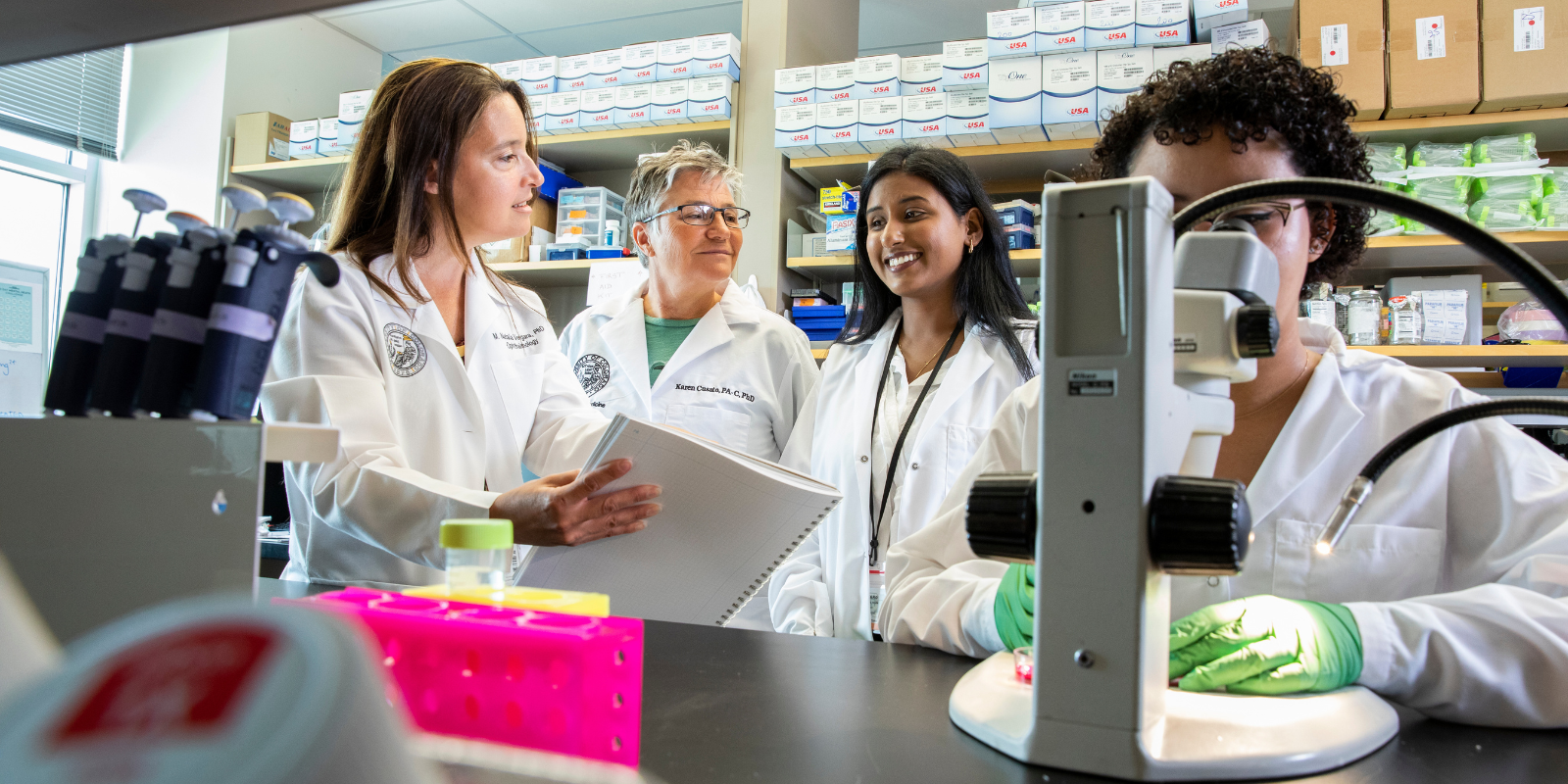This time of year can bring lots of joy, but it can also lead to many hazards for ocular health, says Rebecca Edwards Mayhew, MD, PhD, assistant professor in the Department of Ophthalmology at the University of Colorado School of Medicine.
“During the holidays and throughout summer, I typically see an increase in eye trauma cases,” explains Edwards, who specializes in pediatric cases. “Kids are getting new toys, and projectile toys like Nerf guns or water pellet guns can be dangerous for kids’ eyes.”
The holidays can also prompt other issues in eye care. Edwards walks us through some of the most common eye health challenges presented this time of year and how to best avoid them.
Gift appropriately
“My No. 1 tip is to follow the age guidelines on toys,” Edwards says. “These recommendations are usually centered around developmental abilities, not intelligence, so be cautious even if you think your child can appropriately use a specific toy that isn’t in their age range.”
Toys that shoot projectiles commonly lead to retinal detachments and hyphemia, a collection of blood in the eye sometimes due to an injury.
“Parents might think something like a Nerf gun is softer and not as dangerous, but we see a lot of eye injuries with those types of toys,” Edwards says.
Gifts that encourage kids to get outside and play are among Edwards’ top picks for holiday gifting. “We know that being outside is good for developing eyes, so I would go that route,” she says.
Games that don’t require screens and crafts are also top choices, she says.
Opt for time away from screens
Vacation time coupled with new video games or devices may lead to an increase in screen use. While the American Academy of Ophthalmology doesn’t have set recommendations for older children, the organization does advise against any screen time for children younger than 1, and “very limited screen time for children several years after that.”
Edwards encourages parents to stick to those recommendations and ensure that children are taking time away from screens. The 20-20-20 rule – every 20 minutes look at an object 20 feet away for 20 seconds – can be helpful for children and adults alike.
Spending too much time on a screen can lead to eye strain and sleep disruption.
As for popular virtual reality headsets, which Edwards says are designed to make the brain think the eye is seeing far away, there isn’t any evidence that suggests that the technology specifically harms ocular health, but users should still be mindful of possible impacts of extended screen use.
“With any screen, people tend to blink less so there may be issues with dryness or eye fatigue,” she says. “But for the most part, they’re safe for kids to use. Some amblyopia therapies used by ophthalmologists are through VR headsets, so we don’t believe they’re hurting young children’s eyes.”
Watch out for social media challenges
Ocular safety risks can run beyond screens and gifts this time of year. More time to browse the internet might result in related injuries.
“I’ve seen instances where people are very hurt because of a challenge or hack they saw on TikTok,” Edwards explains.
Over the past few years, several people have landed in emergency care for attempting a “microwave poached egg hack” that became popular online. Many people have suffered severe burns on the face and around the eyes. Other challenges involving Nerf or gel pellet guns have also resulted in eye injuries.
“Some of these challenges online can be fun to do as a family, but be careful to not engage in the ones that could result in injury,” Edwards says. “I would avoid anything that involves projectiles, sharp objects, and anything that may result in a burn.”
Maintain routines
Lastly, Edwards says it’s important to keep up on ocular health habits during holiday breaks and vacations, including those involving screen time. Setting a timer or reminder to logoff can help. Remembering to keep a routine for medication and treatment is important, too.
For adults, taking the right medications or eye drops on schedule can help maintain eye care. The same goes for children.
“For kids that are patching and wearing glasses, keeping up with that during the holidays is important,” she says. “Being home for break, kids can get out of their normal routines, and we don’t want to lose any ground on their treatment plan.”



.png)
